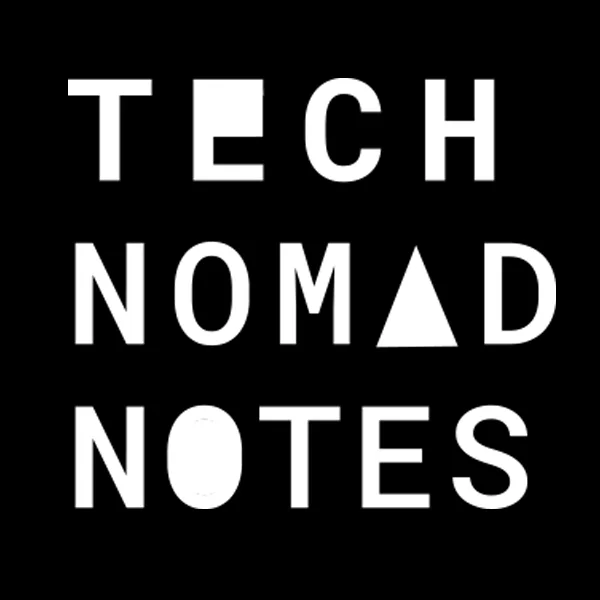Somewhere in Kreuzberg Berlin, Aug 20
Kicking off our new interview series with Derek Strauss - the Co-Founder and COO of @ImmutoInc - who we met earlier this month at Berlin Blockchain Week, and instantly felt the connection.
We were curious to hear Derek’s stance on some of the questions that were heavily discussed during the conference, and still bear a lot of controversy and very different attitudes around the Web 3.0 space.
Bitcoin or Ethereum?
Ethereum for sure. This is what got me interested in the industry 3 years ago. I see Ethereum having greater technological value because of the platform’s utility and that it gives you a medium to create DApps. Without Ethereum I think it would have been difficult for enterprise to begin to see the value of blockchain.
Facebook Libra - yey or nay?
I’m caught somewhere in the middle for this one. Would I use libra myself? Probably not. However, I think it has a ton of value for the unbanked in third world countries. I believe Libra will give them a more stable way to save, spend and transact than many of their home currencies.
Any projects in the crypto space you’re following closely in terms of how they market their product?
I tend to follow more projects focusing on blockchain more than crypto. However, one interesting crypto project (Full Disclosure: No Position) is Chainlink. I came across their project about a year and a half ago as I saw a huge need for a decentralized oracle in the work I was previously doing. I think It’s interesting because of the clear need for the service their providing and that they can harness real-world data into a blockchain which is exceedingly difficult to do. With the hope that smart contracts will be more readily used in our everyday lives there will have to be some party that’s able to validate whether or not outside world conditions were met. With Chainlink’s solution it could be a way to help facilitate this.
You came here to the blockchain week in Berlin from the US, tell me more about your involvement into the local blockchain scene?
The two blockchain communities I’ve been heavily involved with is Tallahassee which is where my college, Florida State University is located and Philadelphia which is where I currently reside. At FSU I helped lay the groundwork to create the community there. I founded the Cryptocurrency Club at FSU and then co-founded the Collegiate Blockchain Conference. Both of these organizations helped bring together students and community leaders in the area to begin to discuss the importance of the technology both at the university and state level.
What’s the blockchain use case you’re shooting at, and why do you think this particular use case needs DLT?
Unlike many people in the space myself and co-founder for Immuto see the value of blockchain for the immutability it provides. Before the creation of blockchain we never had a way of storing data in a truly permanent way. Now with the technology we can irrefutably prove whether or not data are valid which can significantly help reduce fraud within an enterprise setting. I see this as an important use because of the amount of incorrect, inaccurate, and falsified data there is today. With DLT enabled solutions we could track every time data is entered, who entered the data and prove that the data existed in that state. Without using this technology we wouldn’t be able to provide these guarantees.
Some would argue that we’re way too early to think about efficient strategies for dApps wider adoption. What’s your take on that?
I would agree that many of the dApps that are currently out there have been designed without the end-user in mind. I think a lot of this comes from that the community is led and driven primarily individuals with an engineering background. In some of my previous enterprise work this was pretty evident when my team and I wanted to design an MVP for a DApp which ended up taking a few months because of the existing tools available. From my experience and talking to other business-minded people in the space I believe we’ll be able to see faster adoption if DApps are designed to integrate and are compatible with existing tech infrastructure and systems. It’ll take very long and require a lot of convincing to completely retrain people to use decentralized systems which is the approach many are taking today. However, if we can tell end users the benefits the technology providers and give it to them in a way that doesn’t alter their day-to-day work more people will be perceptive to adopting the tech.
Everyone is talking DAOs these days, but I do believe there are way more hands-on blockchain applications right here right now. Resonating?
Personally, I haven’t gone too far down the rabbit hole when it comes to DAO’s. However, from the research that I have done it’s difficult for me to extrapolate the value for enterprise. With that being said, if an organization or person wants to be more transparent with decision making and allow community participation I think Decentralized Autonomous Organizations allow for that very intuitively. This was shown with the original DAO before it was inevitably hacked. I think that there’s a lot of focus on DAO’s currently, which was evident with the vast amount of presentations on them at Berlin Blockchain Week. I’m not quite sold that the space should be focusing as much time and resources as they currently are on this one topic. I think in the coming years DAO’s could evolve to be something impactful but in order to get there we need to take smaller steps with blockchain adoption before were ready.



